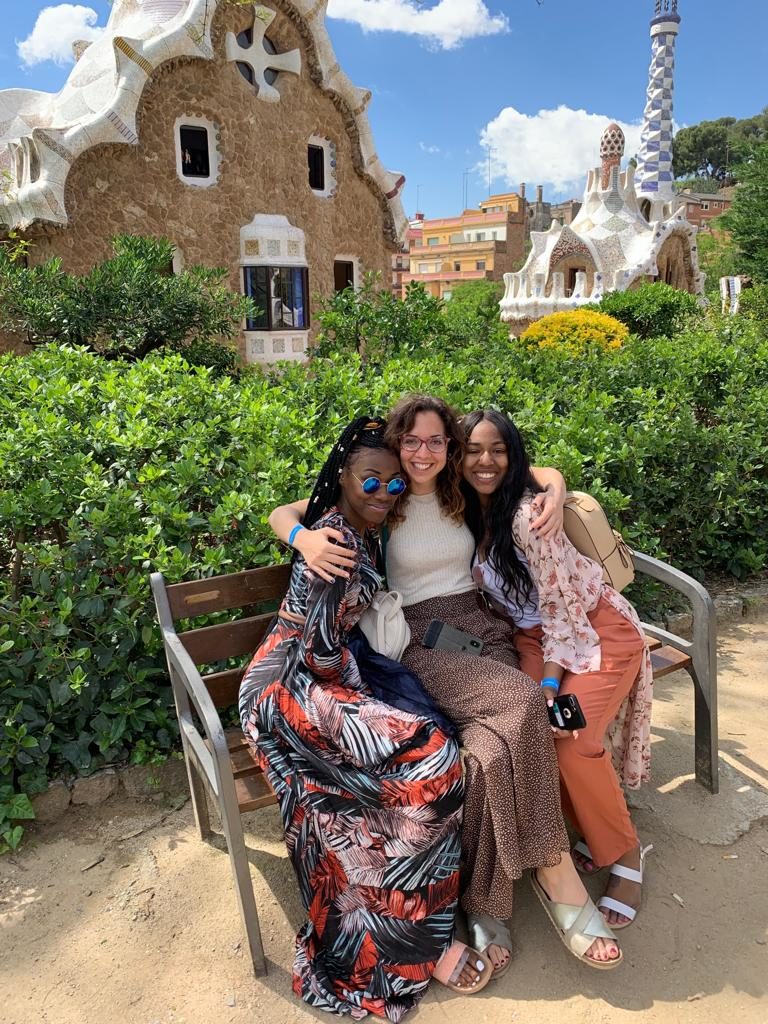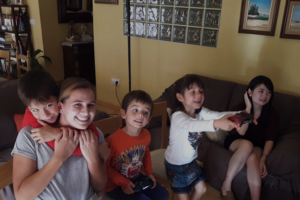
An inside look at living with a host family abroad
You’ve chosen your dream destination, you know what classes you need to take abroad and you’ve been approved to leave your home campus for the
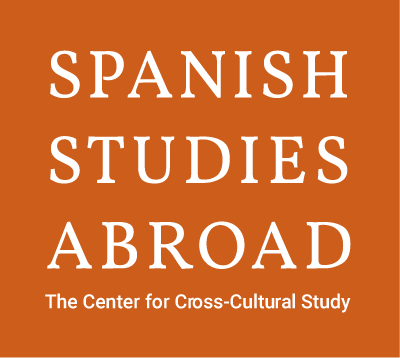
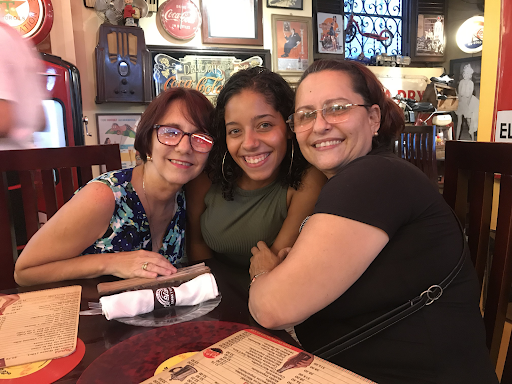
Homestay Families – or host families – are wonderful people who, for many different reasons, decide to invite foreign language learning students into their homes.
Living with a homestay family in Cuba, Spain or Argentina is one of the best ways to integrate into your program’s city and culture. This allows you to actually live with a local family, to sit with them at dinner, to speak Spanish regularly outside the classroom setting and truly learn what it feels like to be a member of the community.
Our Housing Coordinator chooses housing placements very carefully. Most of the families who host Spanish Studies Abroad students have been working with us for years and come with the highest recommendations from former students.
Your señora will give you a set of keys to your house, so you will be able to go out and experience life abroad on your own schedule. With that comes the responsibility of keeping your family informed of your plans; let them know if you will be home late or if you plan to miss a meal.
Many students report back that their host family was one of the most wonderful and enriching parts of their study abroad experience, and they stay in touch with their host families for years after they return to the US. If you are excited about truly immersing yourself in the local culture, this is hands down the very best way to do so.
Living with a homestay family can be cheaper than a residence hall, as all of our homestay parents are very generous with students and provide a wider range of amenities during your stay.
It seems pretty obvious, but by living with a host family you are going to run into experiences that those living in other accommodation will not. You'll learn about many of the cultural and social norms during your stay.
Ok, so to expect to do absolutely nothing may seem a little unfair, but the reality is you're generally not expected to help out with household tasks. That said, maybe you can offer to do some regular tasks for your hosts to help out at home. It may help to build a relationship with your host family.
Sometimes students will have to do their laundry - this depends on the host family you stay with, and it may be a good idea to ask about these things before you go!
A homestay will allow you access to great advice on the best local places to visit, see and explore. If you do stay with a homestay family, make sure you tap into their recommendations to make the most of your stay!
It goes without saying that if you're living with a family, you're probably going to have less privacy than you would expect living on your own or with a roommate in a residence hall. Many people don't mind this and are happy to give this up in exchange for the cultural value gained. Nonetheless, weigh this up before you make your decision.
Just as is the case when you live at home with your parents or guardians, each family has their own rules, that other families may not. It's important to be respectful at all times, and come to an understanding with your homestay family about what you can and can't do, as soon as possible.
We're not saying that you can't do this! We're saying that you should be mindful of your homestay family's wishes and always ensure you have their permission before you do so.Nonetheless, it goes on our list of cons as it's certainly less freedom than if you were living alone in accommodation.
The fact that your host family will cook for you is definitely a positive! The negative however is that you may not always like what they are cooking, and Spanish, Argentinian and Cuban cuisine may be very different from what you're used to.As with everything, the solution here is communication. Sit down with your host parents when you arrive to discuss what you like and don't like. If you have a particular dietary need then let us know before you go so that we can ensure that your needs are met.
From the day I walked into the door of my home stay I felt at home and I felt as if my host mom was just a Spanish version of my actual mother. My host mom, Loli, was an amazing woman and we got along extremely well. She would help me when I had problems, she listened to me, she advised me, she cared for me, and even helped me when I got sick. I look up to my host mom as a role model, and find her to be an incredible woman with many talents. Her family is a beautiful family that is also compassionate and caring, and we would spend a lot of time together. I miss them all so much and actually continue to E-mail Loli on a weekly basis. We established a wonderful relationship and look forward to returning to Seville in June to see her, my partner and other friends.
Michael Farkas, Seville, Spain Tweet
Please take into account that your host family is doing something amazing by giving you the unique opportunity of staying with a local family and directly experiencing the culture. It's extremely important to be respectful and polite at all times. If you were to have any issues, talk about them with your host parents, and of course, let us know so that we can help you and resolve any issues.
Let your host family know what food you like and dislike.
Your stay will be far more fun if you make an effort at the beginning to get to know your host family. You might want to go out and eat together, or play board games. There are plenty of things you can do to get to know each other.
Getting your host family a gift is a great way to break the ice. It gives you things to talk about, and will get your relationship off in the right direction.
It's a great idea to get out and explore your local area as soon as you arrive. Maybe you can do this with your homestay family as a get to know each other activity?
Meeting locals is a wonderful way to kickstart your stay. It will help immerse you in local culture, and will also be a welcome break from spending a lot of time with your homestay family over the coming months. Maybe you can introduce them to each other!
Your homestay family will probably go above and beyond during your first few days to make you feel welcome and at home.
Don't abuse their generosity! Try to pitch in and help out around the home. This gesture will probably be very well received.
There's a time and a place for everything. Try to control your noise, particularly early in the morning and late at night.
This is strictly forbidden on any Spanish Studies Abroad homestay programs. You will be sent home immediately.
You not only risk trouble with the law yourself, but you may even get your host family into trouble. Think first!
At the beginning it can be really hard to feel comfortable in another language. Make a big effort to join in and hold conversations at the beginning. If you do so, you'll notice a huge improvement in your language learning after just a couple of weeks.

You’ve chosen your dream destination, you know what classes you need to take abroad and you’ve been approved to leave your home campus for the
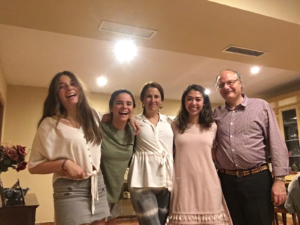
First impressions are everything with your host family. Selecting good gifts for your homestay family is an easy way to break the ice and start

The mission of SSA is to promote our students’ in-depth understanding of Spanish-speaking countries through specifically designed and academically rigorous university-level and cultural travel programs.

INSTITUTIONAL RELATIONS Manager
Beth is your go-to contact for navigating the complex process of study abroad.
She aims to respond to all inquiries within one business day.
Don’t hesitate to drop a message. No question is too small!
Trying to learn more about Study Abroad?
We’re sending you our A-Z study abroad guide, including:
